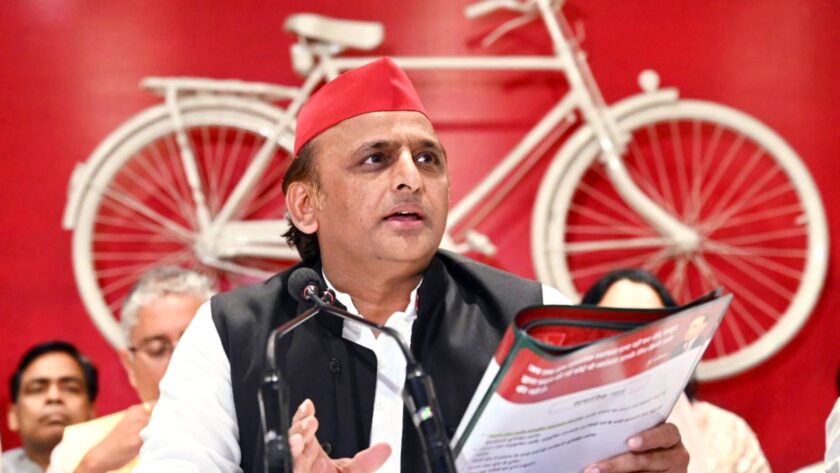Lucknow: As the weather fluctuates in Uttar Pradesh, hospitals are witnessing an alarming surge in dengue and fever cases. The ongoing season has led to a spike in the number of patients, with hospitals across the state struggling to accommodate the influx. The state capital, Lucknow, has reported over 1,100 dengue-positive cases this season, with 645 new cases detected in the last two weeks alone. The situation is expected to worsen in the coming days, as the number of patients continues to rise.
Surge in Dengue Cases in Lucknow
During the course of the weekend, Lucknow saw the highest single-day spike of 38 new dengue cases, intensifying concerns among health authorities. Experts believe the next 15 days will be crucial in terms of dengue prevention, especially with the festive season of Diwali approaching. According to Dr. Pawan Kumar Arun, Director of Balrampur Hospital who spoke to the media, early identification of dengue symptoms and timely treatment are critical for keeping the situation under control. “Dengue cases are rising rapidly, but if detected early, patients can recover with proper treatment and precautions,” he said.
Growing Pressure on Hospitals
The growing number of dengue patients is placing immense pressure on hospitals across Lucknow. Balrampur Hospital’s Emergency Medical Officer, Dr. Sarvesh Singh speaking to the media confirmed that hospitals are facing difficulties in managing the increasing patient load. “As the number of patients rises, it becomes challenging to provide timely treatment. However, the cooler weather post-Diwali is expected to naturally reduce dengue cases,”
In various parts of Lucknow, dengue continues to spread. Recently, 15 new cases were reported, with the highest concentration in areas such as Itaunja, Aliganj, Indiranagar, and Chinhat. The situation in Aliganj is particularly concerning, where seven positive cases were reported in a single day.
Impact of Weather on Dengue Larvae
The fluctuating temperatures in the city have also affected the breeding of dengue larvae. The recent dip in night temperatures below 25 degrees Celsius has led to the death of larvae in several areas, providing a brief respite for health authorities.
Chief Medical Officer (CMO) Dr. Manoj Agarwal told reporters that while the decline in larvae is a relief, dengue is still expected to peak in October. “With the rainy season over and the lack of waterlogging, we are seeing a decrease in larvae in places like Indiranagar, Aliganj, and Alambagh,” Dr. Agarwal said. However, he urged the public not to be complacent, as dengue, malaria, and chikungunya cases are likely to continue rising until November.
Increasing Cases in Posh Areas

The sting of dengue seems to be particularly severe in the more affluent areas of Lucknow. Out of the 61 new cases reported, 33 were from posh neighborhoods, including Aliganj, Indiranagar, and Alambagh. Notices have been issued to several homes in these areas where conditions favorable for mosquito breeding were found.
Hospitals Expanding Capacity
Hospitals in Lucknow are expanding their capacity to cope with the surge in dengue patients. At Lok Bandhu Raj Narayan Hospital, the administration has had to add 10 more beds to its dengue ward.
Shyama Prasad Mukherjee (Civil) Hospital is also grappling with a near-full capacity dengue ward, equipped with 24 beds.
Testing and Treatment
Dengue diagnosis is being carried out through rapid card tests as well as ELISA tests, which are more accurate but take longer to produce results. The King George Medical University (KGMU) is currently treating 72 patients in its medical wards, of which 80% are dengue-positive, and the remaining 20% are malaria patients. Experts suggest patients must remain under observation for a minimum of five to seven days to ensure their platelet count stabilizes before they are discharged. Hospitals are closely monitoring the number of admissions and are ready to expand their facilities if the need arises.
Precautions and Awareness
Health experts are urging the public to take all necessary precautions to protect themselves from dengue. This includes using mosquito repellents, wearing long sleeves and pants, and eliminating standing water where mosquitoes can breed. Experts also emphasize that despite the challenges, it is crucial for people to remain vigilant and follow the advice of health authorities. With timely treatment and preventive measures, the spread of dengue can be controlled, and the health crisis can be mitigated.
As the weather cools and the festive season approaches, both health officials and the public must stay cautious to prevent further escalation of dengue cases in Uttar Pradesh.





